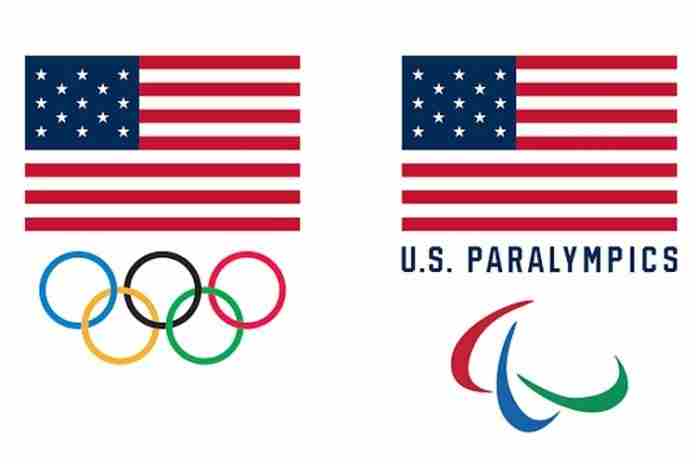Until Friday, the calls for postponement or cancellation of the Tokyo 2020 Olympic Games had mostly come from individual athletes. Some were expansive, some were curt, like 110 m hurdles favorite Grant Holloway of the U.S.:
2020 needs to be canceled..
— S. Grant Holloway (@Flaamingoo_) March 20, 2020
But on Friday, the situation changed and quite dramatically, especially in the U.S.
During an 8:30 a.m. teleconference from Colorado Springs, Colorado, the U.S. Olympic and Paralympic Committee Chair, Susanne Lyons, told reporters that “there is no circumstance when the USOPC would send our athletes into harm’s way if we did not believe it was safe.”
Asked about the comments received from athletes, chief executive Sarah Hirshland said:
“We are getting incredible feedback from athletes that is, as you might imagine, you know, as diverse as our athletes are, so too are their perspectives on this issue, which adds to the complication factor.
“There are, as you might imagine, there are athletes out there for whom this feels like their opportunity, their only opportunity, their one chance. And there, as Susanne alluded to, the environment – even in different parts of our country – is quite different. The reaction from people and what they’re feeling is quite different, and we’re seeing that in the feedback we’re getting from the athlete community for certain.”
But just hours later, a letter from USA Swimming chief executive Tim Hinchey was posted, asking the USOPC to request a postponement of the 2020 Games. Wrote Hinchey in part:
“Our world class swimmers are always willing to race anyone, anytime and anywhere; however, pressing forward amidst the global health crisis this summer is not the answer.
“The right and responsible thing to do is to prioritize everyone’s health and safety and appropriately recognize the toll this global pandemic is taking on athletic preparations. It has transcended borders and wreaked havoc on entire populations, including those of our respected competitors.
“Everyone has experienced unimaginable disruptions, mere months before the Olympic Games, which calls into question the authenticity of a level playing field for all.
“Our athletes are under tremendous pressure, stress and anxiety, and their mental health and wellness should be among the highest priorities.
“It is with the burden of these serious concerns that we respectfully request that the U.S. Olympic & Paralympic Committee advocate for the postponement of the Olympic Games Tokyo 2020 by one year.”
USA Swimming was first, but was not alone for long. Early Saturday (21st), a similar letter was released on Twitter by USA Track & Field, signed by chief executive Max Siegel. His letter mirrored Hinchey’s, asked for a postponement and noted:
“[T]he alternative of moving forward in light of the current global situation would not be in the best interest of our athletes (as difficult as that decision may be).
“We acknowledge that there are no perfect answers, and that this is a very complex and difficult decision, but position at least provides our athletes with the comfort of knowing that they will have adequate time to properly prepare themselves physically, mentally and emotionally to be able to participate in a safe and successful Olympic Games, and that they can shift their focus toward taking care of themselves and their families.”
These are just any two U.S. federations; they are the engine of American medal production. Between them, swimming and track accounted for 65 of 121 U.S. medals in Rio in 2016 (54%) and 63% of all golds (29./46).
In addition, The Athletics Association – the nascent organization of all professional track athletes – has posted a 13-question online survey to collect input and said it has received “almost 1500 replies from professional athletes in just over 12 hours.” (No survey results have been posted as yet.)
This adds to the pressure now mounting from other organizations, including:
● The head of UK Athletics, the national track & field federation in Great Britain, told The Telegraph that the Tokyo Games must be put off. Nic Coward said “From my perspective, right now, I think that will have to lead to the conclusion that the Games must be [postponed]; that the decision has to be made that the Olympic and Paralympic Games can’t take place as currently scheduled” and “[I]t seems to be absolutely what has to happen. And look, it shouldn’t surprise anyone that these very personal experiences take time to come through to the IOC level. I can understand that.”
● The National Olympic Committee for Norway sent a letter on Friday to the IOC, asking:
“In the light of the challenging situation we all face, we would appreciate if the IOC could give us insight on the central milestones in the process leading up to the final decision on Tokyo 2020. Our clear recommendation is that the Olympic Games in Tokyo shall not take place before the COVID-19 situation is under firm control on a global scale.”
National Olympic Committees in Brazil and Slovenia also echoed the call for postponement.
These are not simply individual athletes speaking out; the NOCs are one of the IOC’s primary stakeholders and the organizations primarily responsible for sending national teams to the Games.
The difficulty in training has become a primary concern for NOCs as athlete after athlete scrambles to find a gym or pool or track to continue preparing for competition … whenever it comes. And then there is the spectre of doping.
Tweeted USA Weightlifting chief executive Phil Andrews (GBR):
“One big fear for me – dopers taking advantage. I understand the dilemma facing anti doping agencies, and the almost impossible social distancing. However, it cannot be open season for the cheats.”
Most national anti-doping organizations have cut back their testing to conform with social-distancing recommendations from health authorities, and the conspiracy mongers are already out in force.
What does the IOC do now? Clearly, the vice is tightening on it and the Japanese government to share some kind of plan on a postponement, cancellation, or at least when a decision will be made.
The request for a more definitive timeline was echoed from 1996 triple Olympic gold medalist Michael Johnson, now a BBC commentator, who tweeted:
“IOC should communicate the window for deciding on the ‘20 Olympics. Athletes must keep training but for many there’s nowhere to train! They may risk their lives and others trying to continue training. Answer isn’t just cancel ASAP. But communicate the process to the athletes!”
However, it is also true that any decision to postpone will create a whole new series of questions:
● When will the Games take place?
● What qualifying structure will be used?
● Will athletes or teams already qualified remain qualified?
● What doping controls will be instituted to catch cheaters who used the hiatus for doping?
● What happens to other events scheduled in the time frame not to be used for the Games?
The IOC, of course, will be expected to have all of these answers at the same time it makes the announcement of a postponement (but will not have to face those questions if the Games are canceled!).
It’s a mess, but as IOC chief Thomas Bach told The New York Times that different scenarios are being reviewed and that “We are not living in a bubble or on another planet. We are in the middle of our societies.” Bach said once again, that cancellation was “not on the agenda.”
But the vise is tightening, daily.
Rich Perelman
Editor
You can receive our exclusive TSX Report by e-mail by clicking here. You can also refer a friend by clicking here.


























